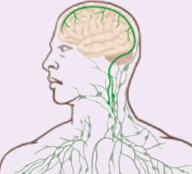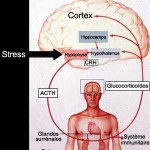Tuesday, 11 December 2018
Pedal Your Way To Healthy Aging!

The evidence of the benefits of physical activity for both the body and the brain continues to pile up. A study published by Pollock et al. in April 2018 dealt with a group of 125 male and female cyclists ages 55 to 79, a stage of life when normally our muscle fibres becomes less vascularized and our immune systems decline. But Pollock found that some of his subjects, at age 75, had the immune profiles of 20-year-olds!
As described in a summary of this study published in the French newspaper Le Monde, these cyclists (two-thirds of whom were men) had all been cycling for many years, still cycled 2.5 hours per week (at moderate but constant intensity) and could cycle 100 kilometres in 6.5 hours. (more…)
Body Movement and the Brain | No comments
Tuesday, 9 May 2017
Protect Your Immune System by Refusing To Be Dominated!

A study published in the November 25, 2016 issue of the journal Science shows that subordinate status in a social group seems to have harmful effects on an individual’s immune system. More specifically, this study found that a female rhesus monkey’s relative position in her group’s dominance hierarchy influenced the functioning of her immune system in the following way: the lower her rank, the fewer immune cells of a certain type her body produced.
And such differences seem to be caused by the activation or non-activation of certain genes. The study’s authors found that when they used experimental manipulations of the group to change individuals’ ranks in the hierarchy, the rate of expression of these genes changed as well. (more…)
Mental Disorders | No comments
Monday, 11 July 2016
A Vessel Connecting the Immune System to the Brain
 In brain science, as in any other branch of science, you should always be skeptical when you read that a “missing link” has been found and that this discovery will force the textbooks to be rewritten. Such skepticism is all the more appropriate when the discovery is described as something that was there all along and that scientists had simply failed to see. After all, for all intents and purposes, the human body has been regarded as almost completely mapped for some 50 years now.
In brain science, as in any other branch of science, you should always be skeptical when you read that a “missing link” has been found and that this discovery will force the textbooks to be rewritten. Such skepticism is all the more appropriate when the discovery is described as something that was there all along and that scientists had simply failed to see. After all, for all intents and purposes, the human body has been regarded as almost completely mapped for some 50 years now.
But in the case of a recent discovery by Antoine Louveau, a post-doctoral fellow at the University of Virginia School of Medicine, the extravagant claims seem to be true: he has discovered a lymphatic vessel that irrigates the brain, even though any current book on the anatomy of the brain will tell you that it is the only major organ in the body that has no connections to the lymphatic system. (more…)
From the Simple to the Complex | No comments
Tuesday, 2 September 2014
Nervous and Immune Systems Closely Tied
 By the late 20th century, cognitive neuroscientists had recognized that they would never truly understand how the brain functions unless they also considered the body in which it does so. This concept of “embodied” cognition implies that the brain constantly maintains a dynamic relationship with the rest of the body, which in turn is totally immersed in its physical and social environment. This model contrasts sharply with others that compare the brain to a computer or treat it as a disembodied organ that simply manipulates symbolic representations of inputs to provide appropriate outputs. (more…)
By the late 20th century, cognitive neuroscientists had recognized that they would never truly understand how the brain functions unless they also considered the body in which it does so. This concept of “embodied” cognition implies that the brain constantly maintains a dynamic relationship with the rest of the body, which in turn is totally immersed in its physical and social environment. This model contrasts sharply with others that compare the brain to a computer or treat it as a disembodied organ that simply manipulates symbolic representations of inputs to provide appropriate outputs. (more…)
Mental Disorders | Comments Closed







